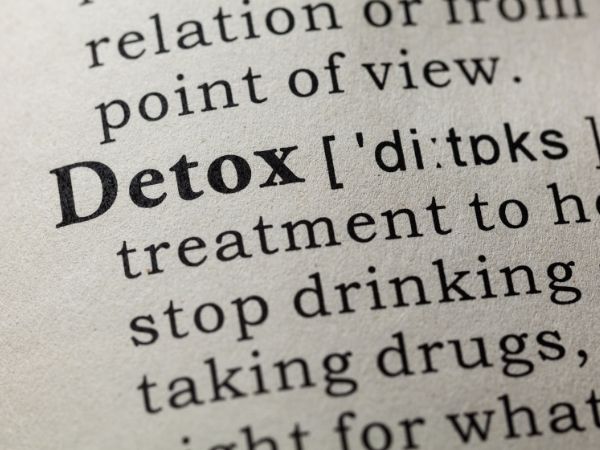Oftentimes, we encounter obstacles and challenges in our lives that are too difficult to handle. Unfortunately, these stressful situations make some people turn to alcohol or drugs to cope. If you or someone you know struggles with alcohol or substance abuse, it would be best to consider getting a medical detox. This may be challenging at first, but it can make a tremendous difference in one’s life.
The Role of Detoxification in Addiction Recovery
Medical detoxification allows an individual to manage withdrawal symptoms from drugs or alcohol. Under the close monitoring and supervision of trained medical staff, a person is able to safely eliminate drugs and alcohol from their body. This treatment can help the patient’s brain stabilize, minimize withdrawal symptoms, and avoid the likelihood of a relapse.
During medical detoxification, the first thing a patient needs is a medical assessment. During this assessment, the patient’s medical history and details about their addiction will be used to develop a personalized detox plan.
What are the Usual Withdrawal Symptoms?
When a person is already dependent on alcohol and drugs and then suddenly stops taking them, the effects of withdrawal in their body and mind can be dangerous. This is one of the top reasons why a person undergoing treatment should detox.
The type and severity of withdrawal symptoms depend on how long a person was addicted to any substance, the type of substance they are addicted to, the usual amount of consumption of these substances, and their general mental and physical health.
Withdrawal can result in a wide range of symptoms that can be seen physically and psychologically.
Physical withdrawal symptoms may include:
- Nausea, diarrhea, and vomiting
- Shaking and shivering
- Sweating
- Runny nose
- High temperature and/or chills
- Increased heart rate
- Increased blood pressure
- Headaches
- Abdominal cramps
- Muscle and bone pain
- Exhaustion
- Vivid and unpleasant dreams
Psychological withdrawal symptoms may include:
- Irritability
- Anxiety
- Confusion
- Paranoia
- Insomnia
- Depression
- Agitation
- Inability to concentrate
- Extreme mood swings
- Intense cravings for the substance
However, withdrawal symptoms can be as serious as:
- Hallucinations
- Delirium
- Seizures
Does Rehab Work?
Although 431,000 women and 1.1 million men received treatment for an alcohol use disorder (AUD), a recent study showed that 95% of Americans struggling with alcoholism do not feel like they need treatment for their condition. This is alarming, as alcoholism can cause a multitude of negative physical and psychological effects.
Going to rehab and getting treatment for an adequate period of time is important. In fact, a study on the retention, early dropout, and treatment completion among therapeutic community admissions shows that long-term treatment can result in better recovery. Medications, coupled with counseling and behavioral therapies, can provide the best results.
That said, if you are struggling with alcohol or substance abuse, you should look for the best treatment option that can help you recover comfortably. Rehabs and medical detox facilities can offer you an array of therapies and treatments that can prevent urges and triggers.
At this phase, a patient will also learn coping skills that can be used after leaving rehab, which may take place in an inpatient or outpatient setting, depending on the severity of an individual’s alcoholism and doctor’s recommendations.
What are the Types of Medical Detox Facilities?
Alcoholism isn’t something that can be treated on your own. If someone you love (or even if it is you) suffers from alcohol or substance abuse, you need to find professional help as quickly as possible before it becomes uncontrollable. Undergoing a medical alcohol detox is necessary if you want to carefully handle the effects of withdrawal.
There are two types of detox facilities. One is an inpatient center, which focuses on the patient’s healing around-the-clock; and the other is an outpatient center, which allows patients to come home at night for work and family.
INPATIENT REHAB
Also known as residential rehab, inpatient centers require individuals to stay at the facility 24/7 to help them focus on their recovery.
The strategy is to remove them from their everyday setup and put them in a serene environment that supports reflection, healing, and recovery. Caring staff are also present in this type of detox center to support and guide them throughout their stay.
OUTPATIENT CENTERS
Meanwhile, for patients who cannot give up their everyday life setting, outpatient rehab should be their best option. They provide patients with programs, including detox and counseling, which may come in individual or group format. Mental health services are also offered in these facilities.
DAILY LIFE DURING INPATIENT REHAB
There are a number of treatments for alcoholism. This includes alcohol counseling, government-issued services, and resources, as well as inpatient rehab.
The daily life during inpatient rehab can be difficult but rewarding in the end. It is considered to be the most structured treatment facility for those patients who want to recover from alcoholism. These facilities are also designed to treat the most severe forms of addiction.
A typical day in inpatient rehab begins with a healthy breakfast and early meetings. The middle of the day involves the most intensive treatment. After lunch, there may be a series of therapeutic sessions. The resident is usually given some free time in the afternoon, while in the evening, there’s a 12-step meeting shortly after dinner. Lights-out is encouraged at a reasonable hour.
Inpatient rehab is run by a team of professionals who will assist the person struggling with AUD. Patients are required to remain on-site for the duration of the program, which is usually 30, 60, or up to 90 days.
Treatment professionals will always be there to provide around-the-clock care. They will also help patients prepare for life after rehab, sharing valuable information about triggers, the importance of sobriety maintenance programs, and what to do in the event of a relapse.
Final Thoughts
A person suffering from alcoholism or substance abuse should be treated well. Their loved ones should be there to persuade and support them to get medical detox, as the physical withdrawal is a serious medical issue that needs appropriate supervision.
Do you know someone who’s having trouble quitting alcohol or substance use? A medical detox can help you get the professional assistance you need for the safe management of physical withdrawal symptoms. Buena Vista Health and Recovery Centers have detox treatment facilities that may assist you in having a sustainable recovery. Contact us at 800-922-0095 to learn more about our programs.
Disclaimer: This post serves a strictly educational use. It does not reflect the services, products, or therapeutic approaches of this establishment or its healthcare practitioners. The purpose of this blog is not to advertise the products, services, or therapeutic approaches of any other establishment that may be associated with this site. On the subject of safe or legal services, products, and appropriate therapies, recommendations ought to be given by a qualified professional on a case-to-case basis.





